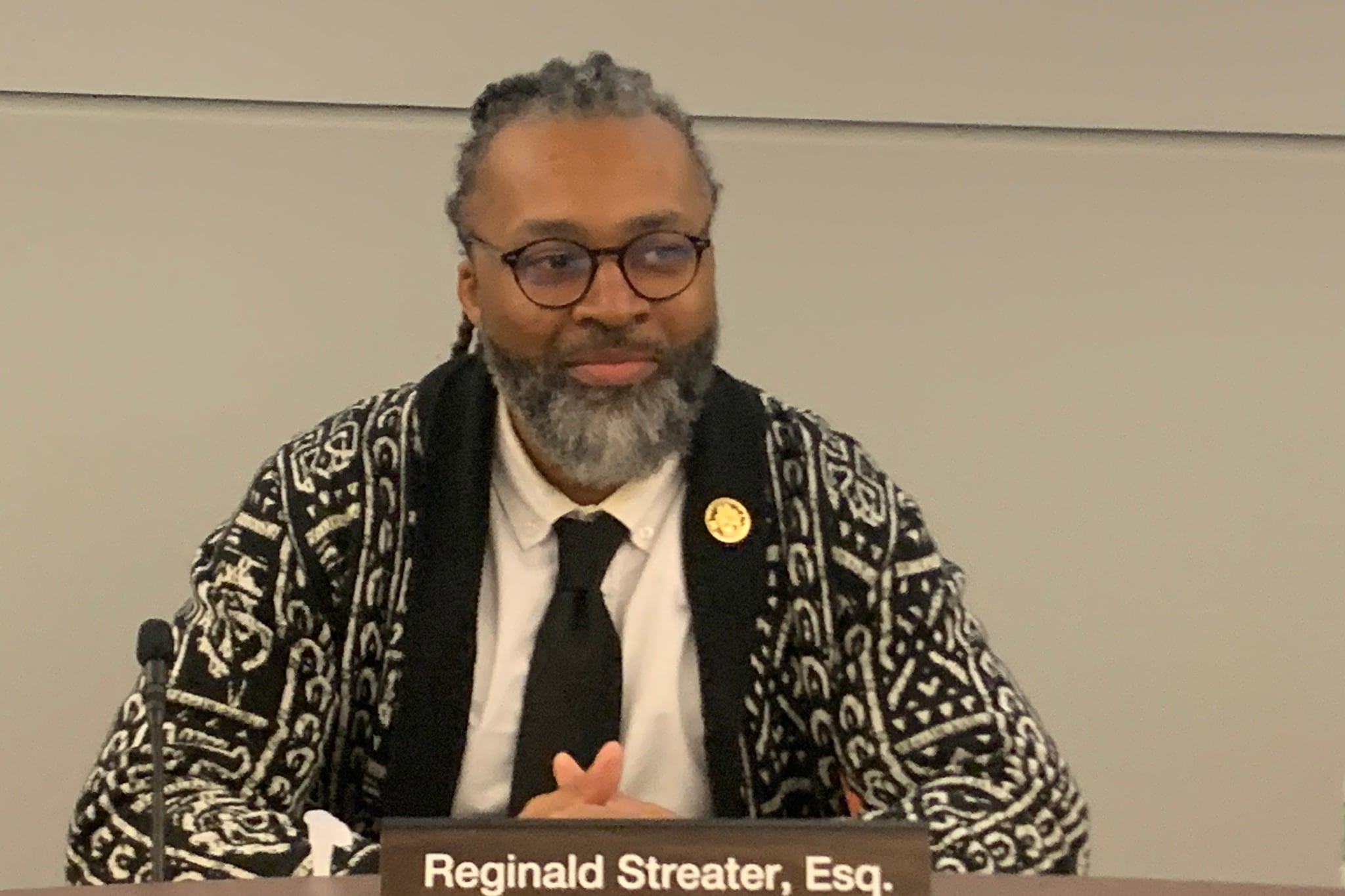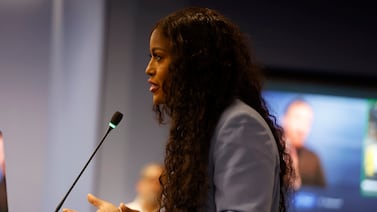The Philadelphia school board has filed a lawsuit claiming a city building code designed to curb asbestos and other safety hazards will needlessly prevent many schools from opening next school year.
The board alleges that a code update in June gives power to a mayor-appointed committee to certify the safety of school buildings. The board worries that the committee, heavily representing unions but with just one seat representing the leadership of the school district, will lack the expertise and credentials to set building safety standards.
There are also seats for a City Council member, for several parents, including one who is an environmental advocate, and for one to three non-voting students.
Board President Reginald Streater issued a statement saying the amendment “could needlessly threaten the opening of many District school buildings at the start of the next school year, jeopardizing the health, safety, and welfare of our students.”
City officials strongly criticized the board’s decision to sue rather than work with them on building safety.
“Philadelphia’s schools have endured decades of disinvestment, and overcoming the challenges this raises requires partnership and problem-solving between the District, City, and other stakeholders. We believe this goal is best achieved through collaboration and not through litigation,” said Mayor Jim Kenney’s communications director Sarah Peterson.
City Council President Darrell Clarke and Education Committee Chair Isaiah Thomas issued their own statement calling the lawsuit “unfortunate.”
“We have seen firsthand the troubling disparities among schools,” the statement reads. “To respond to a plan to get rid of asbestos and other hazards with a lawsuit reinforces that the School District is working to maintain the status quo, rather than working collaboratively to bring our schools into the 21st Century.”
And former council member Helen Gym, now running for mayor and one of the amendment’s sponsors, said that instead of suing, “the school district should be reaching out to parents, labor partners, and the mayor’s office to take immediate action to address the deplorable condition of our schools. The lack of trust is a real and significant issue.”
Jerry Jordan, president of the Philadelphia Federation of Teachers, called the lawsuit “disappointing” and also said collaboration would be a better way to ensure safer schools.
The law targeted by the suit was created by Bill 210685-AA. It sprang from years of concern, community mistrust, and controversy over asbestos hazards in the Philadelphia School District. The district closed several school buildings for months in 2019 to clean out asbestos, and the controversy flared up again in fall 2021, when City Council held hearings and introduced the bill.
Critics blamed the district for lacking transparency and failing to remediate dangers to students and staff. District buildings are on average 75 years old and house 130,000 students and 18,000 employees.
The city has long regulated school building safety. The update last year added asbestos to requirements covering electrical, water quality, lead paint and other potential hazards, and created the advisory board. The new rules would apply to one-third of the district’s 200-plus buildings next August, another third in August 2024, and the final third in August 2025.
“One of our concerns is this advisory board is allowed to consist of individuals with no specific scientific, technical or environmental expertise or licensing,” Streater’s statement said. “The District would be required to accept and meet these standards before a building is allowed to open,” potentially endangering in-person learning for thousands of students.
The 21-page district complaint notes that, as of now, nobody has been named to the board, called the Facility Safety and Improvement Advisory Group.
According to the complaint, the city’s managing director could adopt practices that would close schools “based on vague, undeveloped, and unidentified practices.” And it notes that state and federal environmental laws already apply to the district.
In the past, advocates also have questioned the safety of drinking water in schools. A report last year found that many school drinking fountains still had high lead levels.
Streater said in his statement that the lawsuit does not seek to avoid accountability. Instead, the suit, if successful, “should enable the District to focus its resources on the existing extensive federal, state and local regulations and on the goal we all share: maintaining nurturing, welcoming and safe school environments for all our children and staff.”
He said that last year the district completed more than 4,400 asbestos-related abatement actions in 241 buildings, that 168 school buildings have lead-safe or lead-free certifications, and that the district has installed 1,665 hydration stations in schools.
Jordan in his statement charged that the district has fought union efforts to create safer schools. “Data and information sharing, as well as remediation plans, have been spotty at best, and the bill passed by City Council allows a base layer of oversight into some of the most critical remediation processes.”
Dale Mezzacappa is a senior writer for Chalkbeat Philadelphia, where she covers K-12 schools and early childhood education in Philadelphia. Contact Dale at dmezzacappa@chalkbeat.org.







